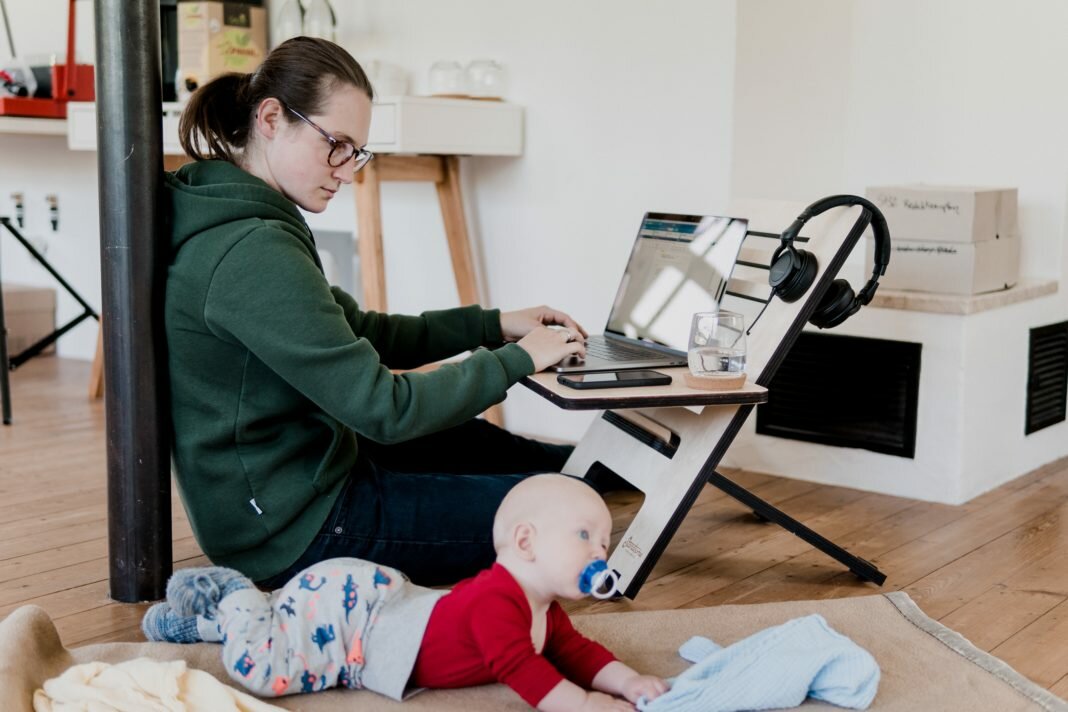Brief • 3 min Read

In a recent poll conducted by The Harris Poll on behalf of Fast Company, Americans revealed they are interested in maintaining many COVID-era behaviors even after the pandemic has ended and putting an end to some pre-pandemic practices.
Pre-pandemic customs such as handshakes and business travel are not missed much by Americans.
Americans are less eager to partake in handshakes again after the pandemic. Thirty percent of Americans say they would like to shake hands with another person less often after the pandemic ends, and another 26% say they would never want to do it again. Just over half of Americans (54%) agree they will only shake hands with other people if required for work or in another formal setting after the pandemic ends. In fact, 54% of Americans agree they would be happy to never shake someone’s hand again.
Fewer Americans are also interested in traveling for business after the pandemic ends. Thirteen percent of Americans say they would like to travel for business less often after the pandemic ends, and 27% of Americans say they never want to do it again. Fifty-one percent of employed Americans plan to travel a few times a year for business after the pandemic ends.
Americans show more willingness to continue several COVID-era customs, mainly those around mask-wearing, remote work, virtual get-togethers with friends and family, and healthcare.
Despite the politicization of masks during COVID, most Americans are welcome to mask-wearing after the pandemic. A combined two-thirds (66%) of Americans say they would like to wear a mask in public at the same frequency they have during the pandemic or more often after the pandemic ends. In fact, 2 in 5 Americans (39%) say they would like to wear a mask more often after the pandemic ends. Eighty-two percent of Americans agree that they will wear masks in public when required by law even after the pandemic ends, and 80% of Americans agree they will wear masks in public if safety guidelines recommend it after the pandemic ends.
Americans prefer a hybrid work environment moving forward but enjoy some of the perks that come with remote work. Although working from home may come with perks, a quarter (25%) of Americans would like to go to work in a physical office full-time more often after the pandemic ends. Another 43% would like to work in a physical office about the same amount they have during the pandemic. Sixty-six percent of employed Americans agree that they would prefer a mix of in-office and remote work after the pandemic ends, and most (61%) Americans enjoy using video conferencing for virtual meetings with their coworkers.
Americans enjoy using video conferencing to build relationships with friends and family, but they are less enthusiastic about continuing video dating after the pandemic ends. Forty-six percent of Americans would like to attend video get-togethers with family and friends more often or at the same frequency they have during the pandemic, and more than half (53%) of Americans also agree that they enjoy video conferencing for virtual get-togethers with family or friends.
Only 23% of Americans say they want to participate in video dating more often or about the same amount they have during the pandemic. In fact, a larger number of Americans (35%) say they never want to participate in video dating on dating sites after the pandemic ends. Moreover, almost half of all Americans (44%) say they only want to date face-to-dace after the pandemic ends.
About half (48%) of all Americans would like to use telemedicine more often or about the same amount as they did during the pandemic. Young adults, ethnic minorities, and parents express the greatest interest in telemedicine.
Younger Americans are more enthusiastic about telemedicine compared to middle-aged and older Americans. 29% of those 18-34 and 32% of those 35-44 would like to use telemedicine more often after the pandemic ends compared to 20% of those 45-54, 18% of those 55-64, and 14% of those 65+.
More Americans of color are also enthusiastic about using telemedicine compared to White Americans and the general population. About a third of African Americans (31%) and Hispanic Americans (32%) would like to use telemedicine more often after the pandemic ends compared to 21% of White Americans and 23% of all Americans.
Parents of children under 18 (33%) would like to use telemedicine more often after the pandemic than those without children under 18 (19%).
Other activities Americans would like to do more often or at the same frequency the have during the pandemic include 63% using outdoor seating at a restaurant (63%) and using curbside pickup for purchases (58%).
Overall, younger adults are more willing to keep or further pursue several COVID-era customs after the pandemic ends compared to older Americans.
After the pandemic, 73% of Americans ages 18-34 would like to wear a mask more often or at the same frequency they did during the pandemic compared to only 54% of those 55-64 and 61% of those 65+.
After the pandemic, 69% of Americans ages 18-34 would like to use curbside pickups for purchases more often or at the same frequency they did during the pandemic compared to only 45% of those over 55.
After the pandemic, 52% of Americans ages 18-34 would like to attend video get-togethers with family and friends more often or about the same as they during the pandemic compared to only 38% of those 55-64 and 29% of those 65+.
Having had more negative experiences with the pandemic, Americans of color are also more willing to embrace several COVID-era customs after the pandemic ends.
Compared to 31% of White Americans, 61% of African Americans and 59% of Hispanic Americans would like to wear a mask in public more often after the pandemic ends. Compared to 22% of White Americans, 43% of African Americans and 38% of Hispanic Americans would like to use curbside pickup for purchases more often after the pandemic. Compared to 18% of White Americans, 32% of African Americans and 26% of Hispanic Americans would like to attend video get-togethers with family and friends more often after the pandemic ends.
Interestingly, though video dating is generally unpopular with most Americans, more minorities are open to continuing it even after the pandemic ends. Compared to 8% of White Americans (and 10% of all Americans), 19% of African Americans and 12% of Hispanic Americans would like to participate in video dating on dating sites more often after the pandemic.
Methodology
This survey was conducted online within the United States by The Harris Poll on December 18-21, 2020, among 1,015 U.S. adults ages 18 and older. This online survey is not based on a probability sample and therefore no estimate of theoretical sampling error can be calculated. Figures for age, sex, race/ethnicity, education, region and household income were weighted where necessary to bring them into line with their actual proportions in the population. Propensity score weighting was used to adjust for respondents’ propensity to be online.
While data was still statistically significant for African Americans, given the group’s raw sample size was fewer than 100 respondents (N=93), African Americans’ responses are reported as directionally accurate/true to comply with The Harris Poll’s public release guidelines.
For more information on methodology, please contact Dami Rosanwo.
Subscribe for more Insights
Subscribe to our newsletter for the latest trends in business, politics, culture, and more.
Download the Data
Get the full data tabs for this survey conducted online within the United States by The Harris Poll on behalf of Fast Company between December 18-21, 2020, among 1,015 U.S. adults ages 18 and older.
Download
Subscribe for more Insights
Subscribe to our newsletter for the latest trends in business, politics, culture, and more.
Download the Data
Get the full data tabs for this survey conducted online within the United States by The Harris Poll on behalf of Fast Company between December 18-21, 2020, among 1,015 U.S. adults ages 18 and older.
DownloadRelated Content








